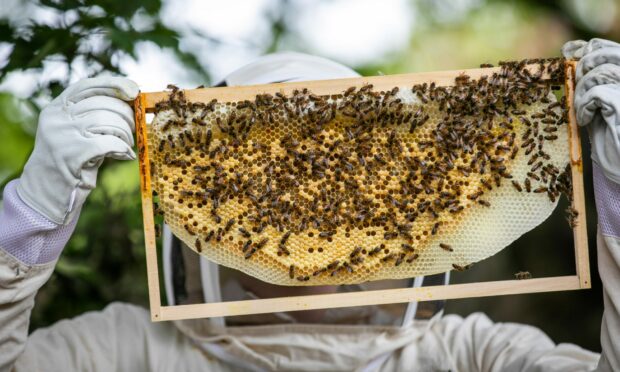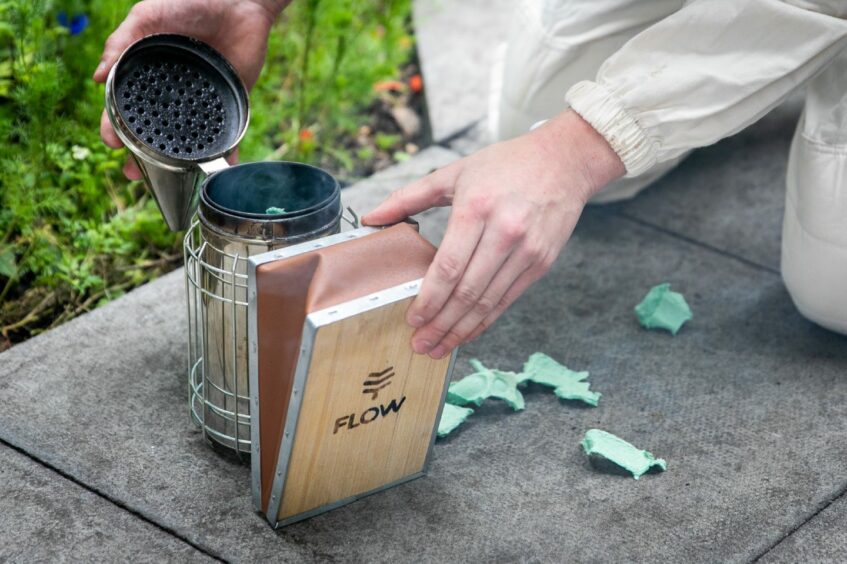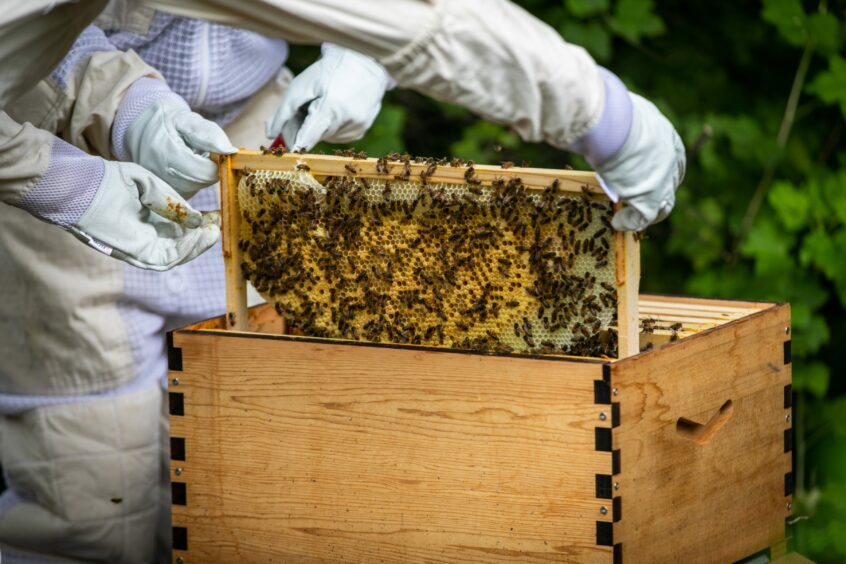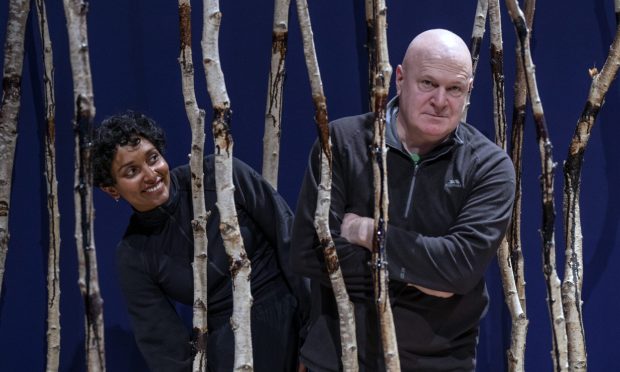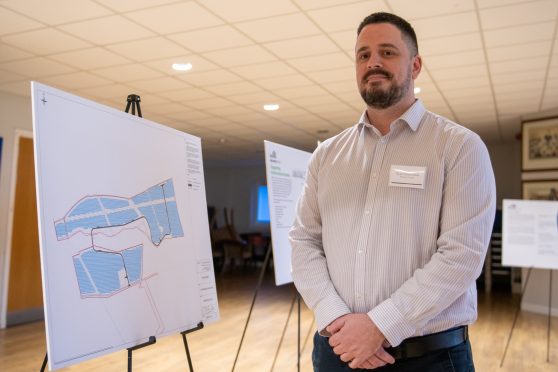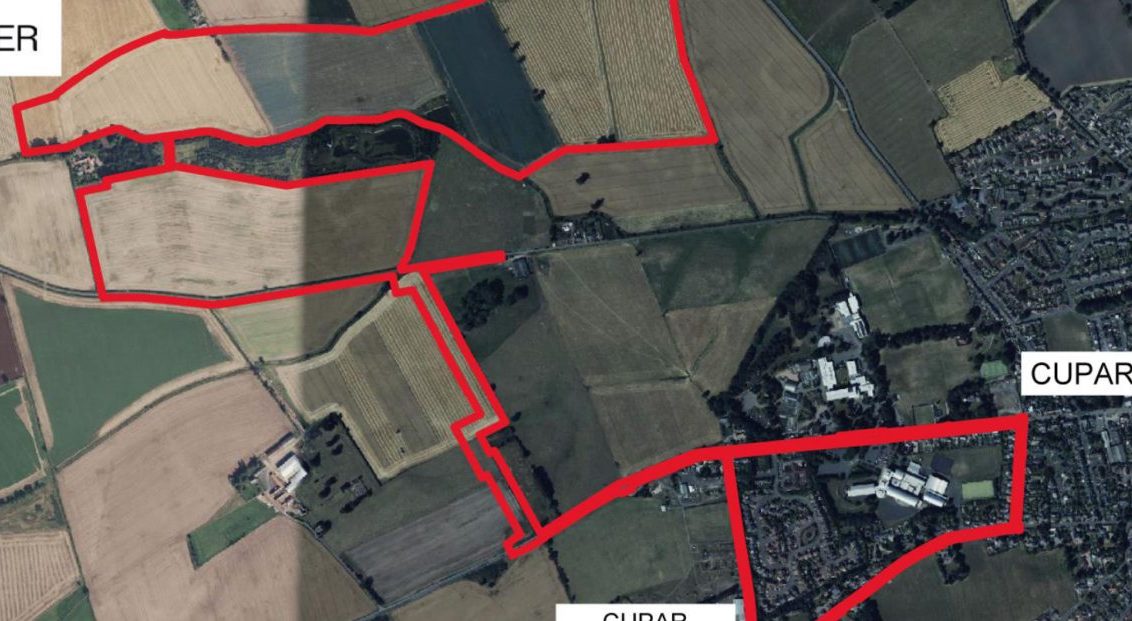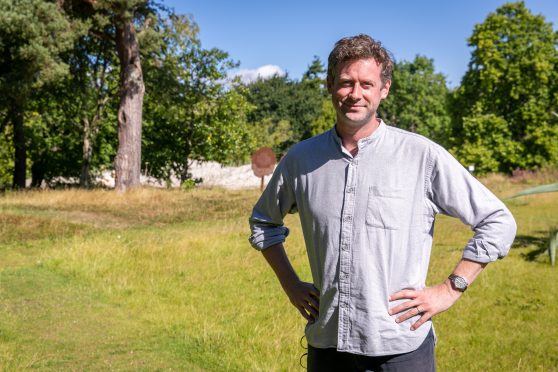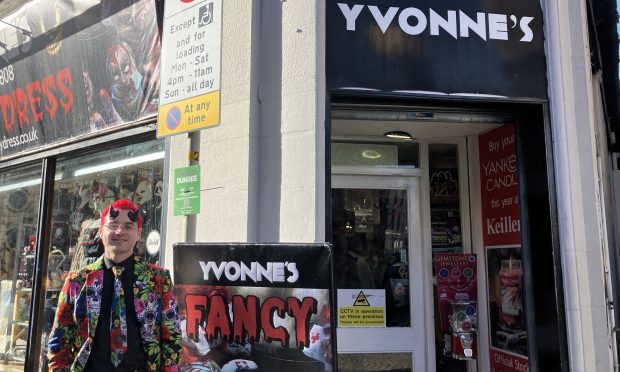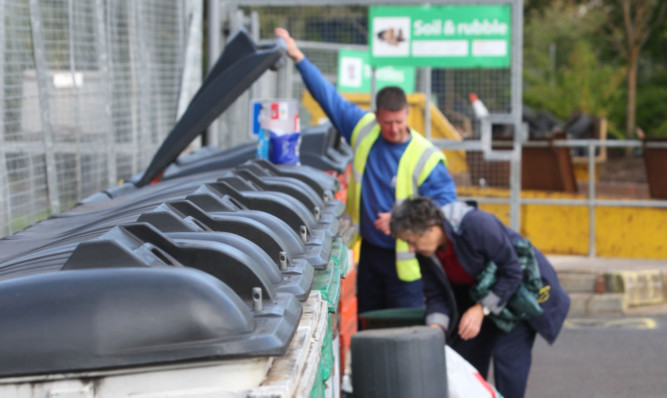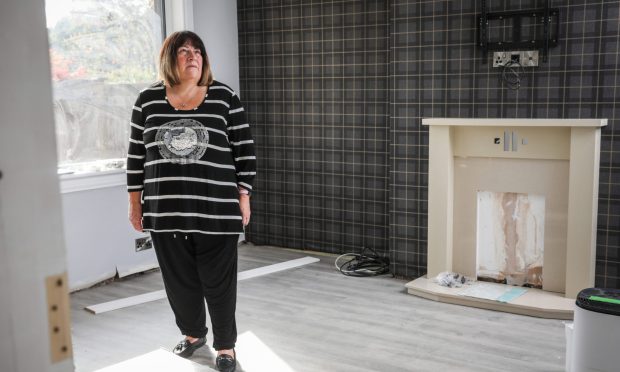Do you want to know the first rule of beekeeping? And no, it’s not ‘don’t talk about beekeeping’.
The first – and most important – rule of beekeeping is that it’s not about you.
At least, that’s what bee lovers Zak Gainey and Fiona Lock told me.
The duo formed a 60-strong student society at the University of St Andrews, creating a passionate hive (see what I did there?) of bee fanatics in the town.
BeeSoc founders Zak and Fiona were kind enough to show me around their hive and share what bees mean to them.
However, the pair were keen to emphasise that they are not the stars of this story.
Fiona, who hails from London, and Zak from Liverpool, decided to start the society due to a shared love of the environment.
Bees are crucial to biodiversity and we have all heard that their numbers are declining.
Watch the video to see why bees are so important for Fife and beyond.
Day in the life of St Andrews beekeepers
First things first, when Zak and Fiona arrive at the hive they smoke the bees.
This might sound brutal, but it’s basically painless, they say.
“It’s just to calm them down and confuse them just a little bit,” Zak told me.
“When you open up the hive, we don’t want anyone getting stung.
“Smoking them prevents them communicating as easily.”
This stops the bees getting so antsy, basically. Instead of wanting to sting anyone, they focus on gorging on nectar.
A few times during our visit the pair had to give the bees another quick burst of smoke.
The bees started to get a little frustrated once the effects wore off.
Then it was time for the colony inspection.
As the society haven’t had the bees for that long, they are still learning what their bees are like.
There are ten frames that they need to work through in order to investigate how the bees are doing.
“There are certain things we are looking for in a new colony such as this,” explained Fiona.
They want to find out:
- Is the queen laying eggs? (Also known as “brood”.)
- Are the bees producing honey yet?
It takes expertise to care for bees, and it isn’t for everyone.
Fiona said: “Before you buy any equipment or get in bees, you need to make sure that it’s the right thing for you.
“You need to ask yourself if you have the right temperament for it.
“Poor beekeeping practice is actually a threat to bees.”
But as a society, they clearly have something St Andrews students are buzzing about.
“It’s more popular than we expected it to be,” said Zak.
“No society offers anything like what we do.
“You can be in a sports team, but you are always competing for something.
“This is just a lovely reason to be outside and be connected with nature in a way that I think most modern students don’t get to experience – I know I didn’t until we started this.”
Remember: beekeeping really isn’t about you
“It’s really not about you,” Fiona said, “it’s about the bees.”
Zak added: “It’s not about greed. Take what they can give, not as much as you can get.”
